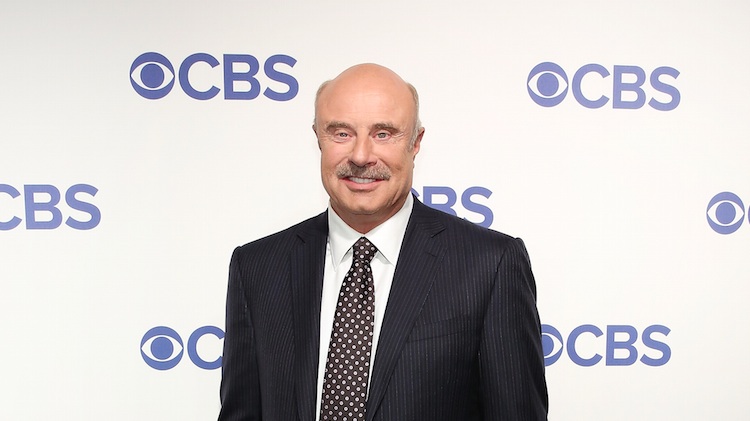
Getty Images
Fans Think the ‘Dr. Phil’ Show Is Staged — Find out What Really Goes on Behind-the-Scenes!
For more than a decade, Dr. Phil McGraw has captivated audiences by bringing troubled guests on his eponymous TV show and trying to help them make a change for the better. But the star may not actually be as compassionate as he seems on-screen. Since the start of the Dr. Phil show in 2002, episodes have only become crazier, and though it makes for good television, some think Dr. Phil is only doing more harm than good by exposing people in their most vulnerable state. So, what really goes on behind the scenes at Dr. Phil? Here’s everything we know about the popular TV show.
Is Dr. Phil a real doctor?
Although Dr. Phil has obtained his Ph.D. in clinical psychology from the Universy of North Texas, he is not a licensed therapist, according to The New York Times. As most doctors will keep the names and information about their patients confidential, Dr. Phil has been accused of violating patients’ privacies in the past — namely Britney Spears’ in 2008. The 67-year-old wrote a blog post about his qualifications after many people questioned his experience when he visited Spears in the hospital and disclosed her mental state to Entertainment Tonight. Dr. Phil explained he retired his license to have a private practice on his 25th anniversary because it was a Texas license and he moved to California. “I do, however, still have 30 years of experience, a hard-earned Ph.D. in clinical psychology so you still have to call me Dr. Phil. I am certainly eligible to be licensed in California so far as education, training and experience, but I’ve chosen instead to pursue another course and use my education,” he wrote. Because of this, the state’s rules on medical ethics were inapplicable.
Are guests paid on Dr. Phil?
Though it seems that not all guests are paid for their time, celebrities are indeed compensated for appearing on the show. ABC confirmed that Burke Ramsey, the brother of the late JonBenét Ramsey, was paid an undisclosed amount to talk about his sister’s murder, while Lindsay Lohan’s mother Dina Lohan reportedly earned $50,000 for going on the daytime talk show.

Burke Ramsey on a 2016 _Dr. Phil_ special.
However, Dr. Phil paying his guests isn’t nearly as scandalous as what was reported late last year by The Boston Globe and STAT, who published a piece claiming that Phil and his staff provided guests with drugs and alcohol to help fuel drama on-screen. In one case, Survivor winner Todd Herzog opened up about his experience on a 2013 episode of the talk show. According to Herzog, he came on to discuss his struggles with addiction, but claims that the staff provided him with the potentially fatal combination of vodka and Xanax in his dressing room prior to filming. When he came on-stage, it was obvious that he was heavily intoxicated.
In another instance, Joelle King-Parrish, the mother of guest Kaitlin, claimed that producers on the show helped her daughter, who was six months pregnant and addicted to heroin, acquire more drugs. On the 2016 episode, footage was aired of Kaitlin, accompanied by her mother, purchasing heroin at Skid Row. “There was a lot of manipulation telling us what to say, telling us how to act, telling us what to do,” King-Parrish explained. “I was told do not question anything he is saying or he could not give her the help she needed.”

Though Dr. Phil himself hasn’t spoken out, psychologist Martin Greenberg, who worked on the show, denied the allegations. “Dr. McGraw has a very strong sense of trying to not exploit people,” he stated. “Now, it is a television show. These people volunteer to come on. They beg to come on. And he tries to treat them with respect… and to give them the opportunity to get help if they want to do that. It’s not a complicated formula.”
He continued, “The STAT article does not fairly or accurately describe the methods of Dr. Phil, the TV show, or its mission to educate millions of viewers about drug and alcohol addiction. The show does not give drugs or alcohol to its guests and any suggestions to the contrary is errant nonsense.”








































